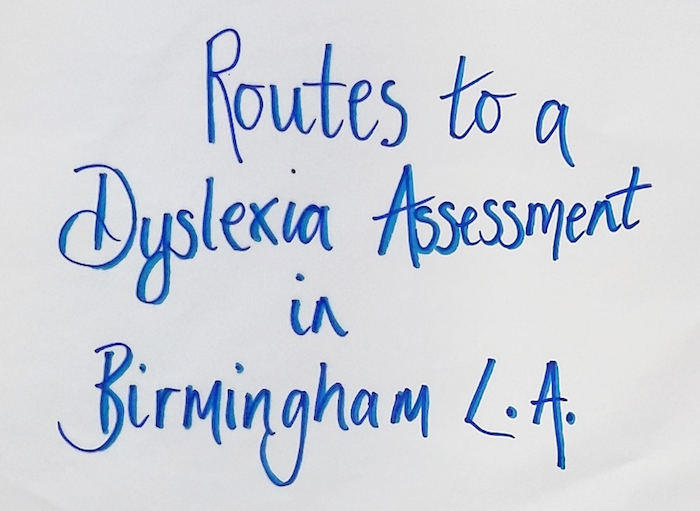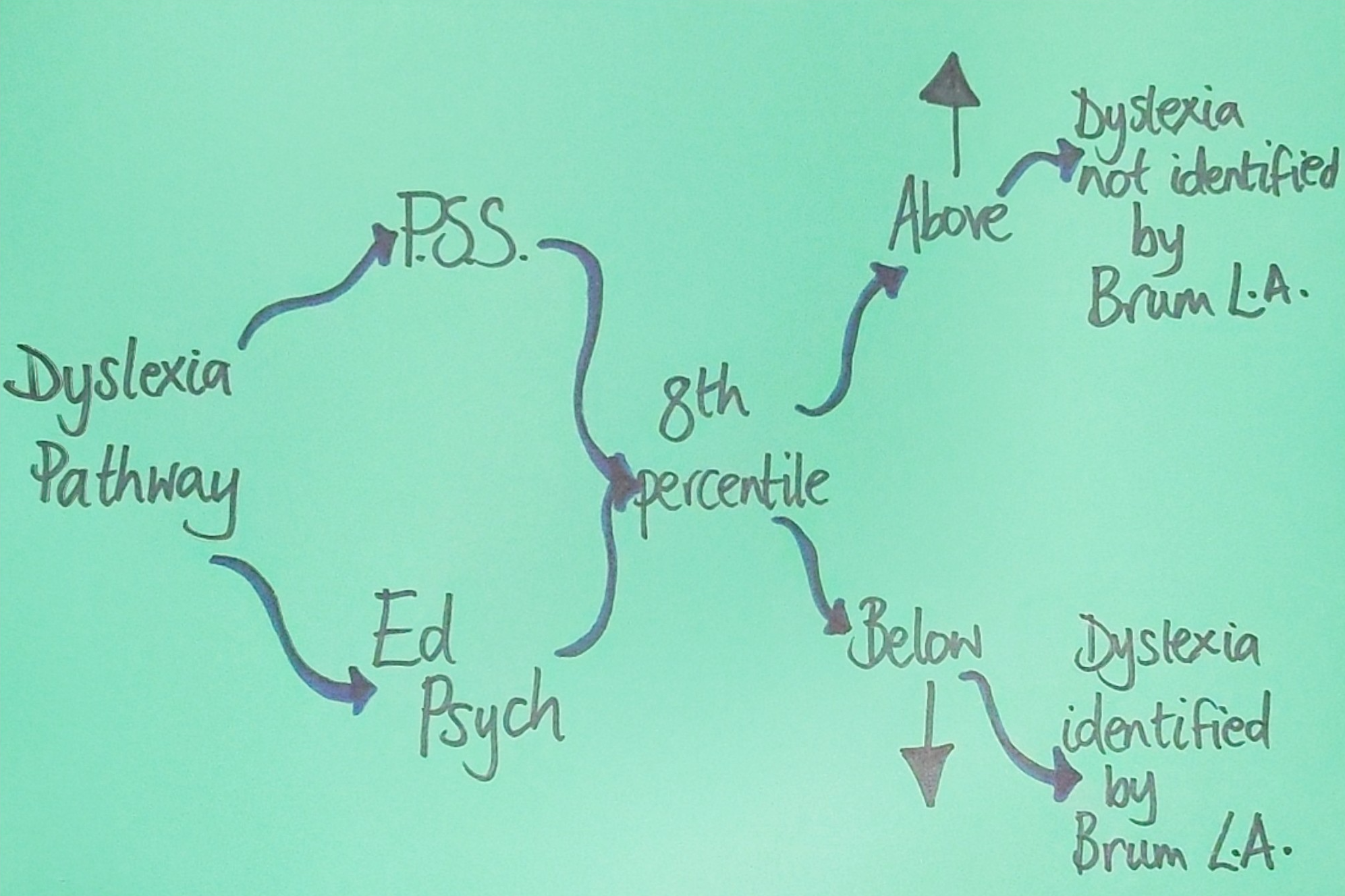Dyslexia Assessment for Children
 Do you have concerns that your child might have dyslexia, but you’re not sure what action you need to take?
There are 2 main routes to having a dyslexia assessment in the Birmingham Local Authority (LA).
Screening and support can be instigated by the school Special Needs Co-ordinator, (SENCo), who can then request that the school buy further investigation and final assessments from Birmingham LA’s Pupil and School Support team (PSS), or Birmingham Educational Psychology team.
You can pay for a private Educational Psychologist (Ed Psych) to assess your child.
Do you have concerns that your child might have dyslexia, but you’re not sure what action you need to take?
There are 2 main routes to having a dyslexia assessment in the Birmingham Local Authority (LA).
Screening and support can be instigated by the school Special Needs Co-ordinator, (SENCo), who can then request that the school buy further investigation and final assessments from Birmingham LA’s Pupil and School Support team (PSS), or Birmingham Educational Psychology team.
You can pay for a private Educational Psychologist (Ed Psych) to assess your child.
At Together we would always advise that, if you have concerns, your first port of call would be to have a chat with your child’s class teacher about them. Often you will find that the teacher has already put some strategies in place to help your child. You can ask for an appointment with the school SENCo and discuss what the next steps would be. The Birmingham LA has set guidance for schools about how best to support those children who are experiencing difficulties with reading and writing which is outlined in The Dyslexia Guidance Booklet Dyslexia Pathway
If schools have some concerns about a child’s progress they usually put additional strategies in place for them and monitor their progress, collecting evidence in the light of this for a set period of time, often a minimum of 6 months. When the evidence has been gathered, if less than expected progress has been made despite the additional strategies and support, the school can opt to use some of their LA allotted PSS hours/ buy additional PSS time/ use some of their Ed Psych hours to support them. PSS/Ed Psych will come in to school, consult with your child’s teacher and SENCo and conduct an initial assessment. This assessment will form a baseline of your child’s strengths and weaknesses and will include percentile scores for different areas of functioning, such as reading, spelling and phonological awareness. It is important to know that it is possible to have dyslexic difficulties in a number of areas, or just one. For example a person might be dyslexic for writing but not for reading. Percentile scores rank your child in a standard group of 100 people. Percentile Ranks range from 1 to 99 with 1 being the lowest score, 50 representing an average and 99 being the highest performance on the test.
Once this baseline has been conducted the PSS teacher/Ed Psych will give guidance to the school about specific activities, frequency and duration as well as other support strategies that will be necessary for your child in light of the assessment. The school will then implement this for a further 6 months as a minimum before PSS/Ed Psych return and reassess your child. If your child’s percentile scores in any area are below the 8th percentile at this point then dyslexia will formally be identified.
 The 8th percentile is Birmingham LA’s cut off for identification as those at this level and below, following targeted intervention, have the most severe and persistent need. Since dyslexia is a continuum with no specific cut off point, if your child is above the 8th percentile it is still possible that they have dyslexia, but not as severely as to require further support through the PSS/Ed Psych teams. However, whether your child receives a dyslexia identification or not, the school can continue to provide the support and strategies that have helped your child to progress. Following this final assessment from PSS/ED Psych it is important to discuss the next steps with the SENCo and teachers so that you have a clear picture of what will be done for your child.
The 8th percentile is Birmingham LA’s cut off for identification as those at this level and below, following targeted intervention, have the most severe and persistent need. Since dyslexia is a continuum with no specific cut off point, if your child is above the 8th percentile it is still possible that they have dyslexia, but not as severely as to require further support through the PSS/Ed Psych teams. However, whether your child receives a dyslexia identification or not, the school can continue to provide the support and strategies that have helped your child to progress. Following this final assessment from PSS/ED Psych it is important to discuss the next steps with the SENCo and teachers so that you have a clear picture of what will be done for your child.
Should you decide to have a private assessment via an Educational Psychologist the approach will be quite different and will cost a few hundred pounds. An assessment will usually be made within a period of a couple of hours following a sequence of tests and some Ed Psychs will ask to see evidence of the child’s school work over time. The Ed Psych will write a full report on the results of the test and should offer guidance as to the implications and strategies that would be helpful. The report will be very useful to share with the SENCo and class teacher.
Being assessed via an Educational Psychologist does seem less complicated and much more immediate, however most current research favours the ‘Assessment through Teaching’ approach taken by Birmingham’s Dyslexia Pathway for its accuracy. This is because dyslexia is a specific learning difficulty that is persistent over time and their approach ensures that thorough evidence is gathered alongside standardised testing. At Together we would support parents taking either route for assessment, but would advise that one that engages fully with school would be the most preferable. If your child is above the 8th percentile after a final assessment by PSS/Ed Psych you may be confident that your child is being supported and decide not to peruse any further assessment. But if you feel that it is important to know if your child’s difficulties are as a result of dyslexia then you will need to engage a private Educational Psychologist at your own cost. You might find an Ed Psych through word of mouth or The British Psychological Society have a list of professionals in your area.
For additional information and support please see the NHS dyslexia guidance or contact us if you need further support.
P.S. please forgive my shonky attempt at graphics!

